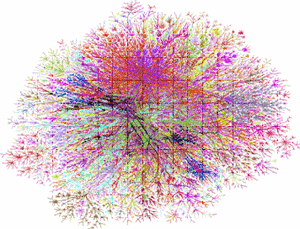Vanderbilt University
Engineering Capability Brief
Super Networks
VU Station B 351831, Nashville, TN 37235; 615-322-3040; fax 615-322-3365
E-mail: sankaran.mahadevan@vanderbilt.edu
 Networked systems provide the infrastructure and foundation for the functioning of today's societies. Examples of such systems include: transportation and logistical networks, communication networks, energy and power networks, as well as more abstract networks comprising: economic and financial networks, supply chain networks, environmental networks, social, and knowledge networks. Such "Super" networks often share certain properties, including large-scale nature and complexity, increasing congestion, alternative behaviors of users of the networks, as well as interactions between the networks themselves. The decisions made by the users of the networks, in turn, affect not only the users themselves but others, as well, in terms of profits and costs, timeliness of deliveries, the quality of the environment, and so on.
Networked systems provide the infrastructure and foundation for the functioning of today's societies. Examples of such systems include: transportation and logistical networks, communication networks, energy and power networks, as well as more abstract networks comprising: economic and financial networks, supply chain networks, environmental networks, social, and knowledge networks. Such "Super" networks often share certain properties, including large-scale nature and complexity, increasing congestion, alternative behaviors of users of the networks, as well as interactions between the networks themselves. The decisions made by the users of the networks, in turn, affect not only the users themselves but others, as well, in terms of profits and costs, timeliness of deliveries, the quality of the environment, and so on.
Policy decisions in such diverse areas as highway congestion pricing, internet routing, and energy pricing and many other current issues, require an understanding of the behaviors of those who use the network system as well as their interaction with the underlying topology/topologies. Traditional paradigms for modeling such behaviors include user equilibrium, based on the concepts of equilibrium in n-person games (Nash, 1950), or system optimality (Dafermos, 1969), in which the total cost to the entire system is minimized. Nash equilibrium assumes non-cooperative behavior with perfect information and perfectly rational users, while system optimality implies that all decisions are made by a central authority and that all users are fully cooperative. Although both user equilibrium and system optimality assumptions allow for a better understanding of decision maker behavior and allow for analyses of very complex problems, both assumptions of user behavior are too restrictive.
At the Systems and Decision Making group at Vanderbilt we investigate policy design in such "Super" networks by employing a multidisciplinary approach that combines decision theory, network theory, systems engineering, reliability and risk theory and complex adaptive system theory, mathematical modeling, optimization and advanced agent based simulations.